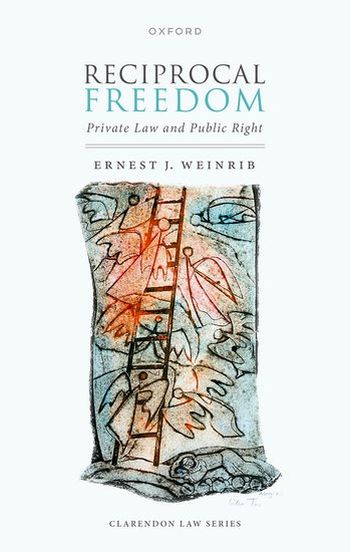
Reciprocal Freedom elucidates the relationship between private law and the state, presenting reciprocal freedom as the normative idea underlying a legal order in which private law occupies a distinctive place. Weinrib develops a set of interconnected conceptions of private law, corrective justice, rights, ownership, the role of legal institutions, distributive justice, the relationship of constitutional rights to private law, and the rule of law.
The book is explicitly Kantian in inspiration; it presents a non-instrumental account of law that is geared to the juridical character of the modern liberal state. Combining legal and philosophical analysis, it offers a sequenced and legally informed argument for understanding law as necessary to our co-existence as free beings.